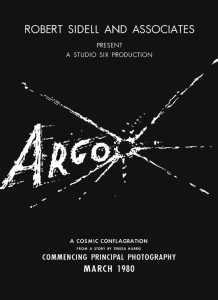Boom. Ahh. Screeching. These are the sounds of human pain, and pain is what every human fears. In modern times, the idea of a doomsday has always been in the mainstream: raptures, meteors, zombie apocalypses. Some have even been made into TV shows. However, there is one doomsday idea that actually had people scared for the date December 21, 2012. What that day meant to a lot of people was the end of the world according to the Mayan Calendar. While many were genuinely afraid of the end of times, most of them were uneducated about what the end of the Mayan calendar actually signified.
The “end” of the calendar is actually not the end of the calendar. The Mayan Calendar has different cycles. For example, the end of the b’ak’tun cycle, the most recent cycle, was December 21, 2012. The entire b’ak’tun cycle lasted for 144,000 days. It was also the end of a cycle of thirteen b’ak’tuns, the beginning of which was on August 11, 3114 B.C.E. That cycle of thirteen b’ak’tuns is called the Long Count, and according to scholars, this literally defined the Classic Period of the Mayan civilization.1

Since the end of the b’ak’tun cycle and the Long Count cycle both coincided on the winter solstice of 2012, many people thought the sun would also align with the equator for the first time in 26,000 years.2 This eventually caused widespread panic; however, there actually was nothing to worry about. Since many people did not know that the end of the calendar only signified the end of a period, they began to freak out as the Gregorian calendar reached closer to that December 21. They began protesting, screaming at everyone “the end is near,” and some people even began stockpiling candles and essentials, and survival shelter sales were ever increasing.3 People then waited, and waited. Finally, the day arrived… and… nothing happened. People were shocked, and life went on. Workplaces and cities kept on their pace, unfazed by the threatening context behind the date.

Many people truly believed this would happen: this day meant death and doom, something people have always been scared of. These people were ready to be taken, for many people felt this was a prophecy of some sort. They thought the readings of Nostradamus, the Book of Revelation, Hopi Prophecy, and others had some truth to them, rendering this idea of a calendar prophesying the end of the world realistic.4 Some anticipated some sort of pick-and-choose session where Jesus would come back to Earth to save His people (Christians) and leave the rest behind.
The meaning of this 2012 phenomenon, now a debunked theory, is that people fantasize about a doomsday; they fear it, for they see it as a real possibility because of both their fantasies and the plethora of theories to read about. The idea of an apocalypse will always be appealing to some, for the end of times can show who a person truly is. Since most of this was widespread online hysteria, and not taken too seriously by most people, with hindsight now, we can see that it was clear that “this wouldn’t happen.”5
- Robert K. Sitler, “The 2012 Phenomenon: New Age Appropriation of an Ancient Mayan Calendar,” Nova Religio: The Journal of Alternative and Emergent Religions, Volume 9, Issue 3, (2006): 25; V. Bohm, B. Bohm, J. Klokocnik, J. Vondrak, J. Kostelecky, “Dating of Mayan calendar using long-periodic astronomical phenomena in Dresden codex,” Serbian Astronomical Journal, Issue 186: (2013): 54. ↵
- Sarah McCarry, “Is the World Going to End in 2012?” Scholastic Scope Vol. 61, Issue 5: 18 (2012). ↵
- Nick Allen, Malcolm Moore, and Tom Parfitt, “Mayan apocalypse: panic spreads as December 21 nears,” The Telegraph, (2012). ↵
- Carl Johan Calleman, The Mayan Calendar and the Transformation of Consciousness (Simon and Schuster, March 25, 2004), 1-2. ↵
- Stephanie Pappas, “After Mayan Apocalypse Failure, Believers May Suffer,” Live Science, (2012). ↵



59 comments
Alejandra Mendez
It’s interesting to see just how much people get easily frightened over things they hear. 2012 has not been the only predicted “doomsday”. Another recent doomsday, or dooms-year I should say, included the year 2000 (Y2K) During this year, people went into panic as well and feared for their lives. One can also see people panicking at this moment in time because of all of the recent catastrophes we have had. Many believe this is God punishing all human kind and is essentially trying to “wipe us out” just as he did with the great flood mentioned in Genesis.
Cherice Leach
Doomsday was obviously a hoax many people who believe in crazy things made up. However, it was a pretty fearful day for some. It’s interesting to know that the end of the Mayan calendar, December 21st, 2012, was just the end of a period. Even though I didn’t believe the world was ending on that supposed day, if I had believed in all of that nonsense, and I would have known the fact about the Mayan calendar I would have probably returned all the survival kits I thought I needed.
Joel Gracia
I took specific interest in this article because, as a child, I took great interest in the discovery channel and saw way too many documentaries of claimed apocalypse dates. I was extremely scared of 2012 because of this, but of course got over my fears with age. I always wondered what the Mayans really did mean by ending the calendar on that year, which is why I enjoyed this article so much, even though it still is a relatively ambiguous concept. Very well written.
Richard Navarro
I remember that day exactly, I was so frightened thinking that I would never see my family again. I knew about the Mayan Calendar but I actually thought it DID in fact end on December 21, 2012. This article is a very informative article about the calendar. I would’ve never known that the Mayan calendar had “cycles”. The picture choice is quite interesting, especially the picture of the evil mayan.
Josselyn Arrieta-Meraz
I remember this year and all the people who actually believed this was the end. As a child hearing “the end of the world is getting closer” I had many questions, and the answer was According to the Mayan Calendar December 21, 2012 is last day they had tracked, so of course it might have made sense at the time but what many didn’t know was that yes that was the end to their calendar but it goes on. As humans when you see someone else freaking out about something that can possible affect you, you go crazy your self activating this non-stop chain of fear among others causing destruction and complete chaos.
Matthew Rios
I remember during the 2012 hysteria, I was a mere child in 6th grade. I was easily persuaded by online text at times, not always completing my research. It sat in my mind, but from I can remember I scolded those I knew who believed in such false prophecies. I would remind them to keep their sanity hats on. It was during this time a very popular false prophetic individual was making such prophecies as well. Adding to the hysteria claiming it was going to be a heavenly rapture.
Of course, anyone who is prophesizing doomsday is profiting somehow.
Karina Nanez
This was very well written and interesting to read. This was especially relatable because we can all remember the panic of this and how incredibly nervous everyone was when December 21 came around. You did a wonderful job explaining the cycle of the calendar and how December 21 was simply the end of one cycle. Though I had never known just how far back this calendar went.
Michael Mandujano
I have never really understood the purpose of the Mayan Calendar, but after reading this article I have gained greater understanding and knowledge. Although, I am not one to fear nor believer of doomsday/ end of the world theories and conspiracies. This article was well put together and provides adequate information to understand why people believe the theories within the Mayan Calendar.
Blanca Martinez
This a pretty cool article, I knew that the Mayan Calendar was just periods in time but it honestly made me fear watching the movie 2012 for the longest time. It’s very interesting how people can believe in such a thing, although I’m not kidding anyone if I say I didn’t believe there will eventually be an “end of the world” thing. It was probably social media that put people into more hysterics, making them think too much about that date just like this time with the gas issue.
Sebastian Castro Ramos
As part of my social studies curriculum on elementary back in Honduras, I learned a lot about the Mayans, specially because it was a culture that was once present in Honduras, and my teacher was a Honduran historian. Just as most people in Honduras, I knew about the reality of the “end” of the Mayan calendar, and this general frenzy wasn’t as widespread as this article describes it was at least in the United States. It is ridiculous how people can naively believe a superficially and poorly supported interpretation the event of the end of a period.